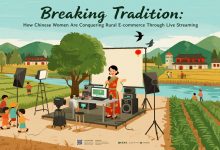When I was little, I wasn’t exactly a star student, but somehow I got accepted into the best middle school in our district. My grandmother and mom were over the moon – I mean, completely losing their minds with excitement.
I was pretty pumped too. Before school started, I snuck over to check out the campus. The place was massive – like something out of a movie. They had this gorgeous courtyard with a fountain, actual trees everywhere, and the buildings looked like something from Harvard. The bell system wasn’t some cheap buzzer – it was these deep, resonant chimes that made you feel important just hearing them.
But when registration day came around, the same old nightmare happened. I didn’t have the right paperwork. No Social Security number. No birth certificate they’d accept. The school basically said, “Thanks, but no thanks.”
I’d been expecting this, honestly. It wasn’t my first rodeo with this kind of rejection. School was school – somehow, someway, the adults would figure it out.
But man, the embarrassment never got easier to swallow.
I’d been living in the shadows my whole life.
My mom was undocumented. No work authorization, no legal status, nothing. We were constantly moving, switching schools, always looking over our shoulders. She cleaned houses when she could find work, always getting paid under the table.
You’d think after all those years, I would’ve gotten used to it. But honestly? You never really do.
Every time a teacher would say, “Students without Social Security numbers, please stand up,” my heart would drop into my stomach. I’d stand there, alone, feeling like everyone was staring at me like I’d committed some crime. Like I was trying to get away with something I had no right to.
Looking back, I can’t even remember why teachers needed to single us out like that. Maybe it was for some kind of testing, or funding paperwork, or state reporting. Who knows? I’ve probably blocked it out on purpose – you know how your brain just decides to delete the stuff that hurts too much to remember.
Sometimes they’d make it even worse: “Students without documentation, move to the back of the room.”
So there I’d be, walking to the back while thirty pairs of eyes followed me, feeling like I’d never be able to rejoin the group again. Like I was permanently marked as ‘different.’
When you’re a kid, this stuff hits hard. All the other kids had what they needed – it was automatic, no big deal. But me? I was always the exception, the complication, the one who made things awkward. I felt like I was stealing something that didn’t belong to me, just by sitting in those classrooms.
I used to come home crying, blaming my mom for our situation. Not my finest moments, honestly. She’d get so frustrated she’d yell at me, which just made everything worse.
Oh, and we always paid more.
During the brief period when mom’s house-cleaning business was doing well (she had some wealthy clients who paid decent money), we had more cash than most families in our neighborhood. I’d show up to school with new clothes, nice supplies, the works. But even with money in our pockets, having nice things felt wrong when I didn’t even have the basic right to be there.
What good were new sneakers when I didn’t officially exist?
So when the registration office turned me away again, I just walked out and left my grandmother to deal with it. I couldn’t stand there and watch her beg one more time.
Grandma spent the entire day running around – the district office, my old school, trying to get letters and documents. She was in her eighties, barely spoke English, but she knew this school was special. She wasn’t giving up.
The beautiful campus kept calling to me. I really, really didn’t want to end up somewhere else.
The next day, we tried again. Still got rejected – apparently we were missing some crucial form. My grandmother, bless her heart, didn’t fully understand what they needed, but she planted herself in that office and just started telling our whole life story to anyone who’d listen.
The administrator looked exhausted and kept trying to politely get rid of us. Every time Grandma would pause, he’d give the same response: “Ma’am, I understand your situation, but I’m not the person who can help you with this.”
Finally, my grandmother got desperate and played what she thought was her trump card: “This child’s grandfather died fighting for this country in Vietnam! We’ve sacrificed everything for America!”
I was shocked. I mean, I knew about my grandfather – we had his folded flag and everything – but I’d never thought of that as something that could help me.
Turns out it didn’t matter anyway. The guy just repeated: “Ma’am, I understand, but I’m not the person who can help you.”
Eventually, like always, things got sorted out. We paid extra fees – a lot extra – and I got into that beautiful school. I stayed there for three whole years, which was honestly a record for me. But stability? That’s not really the right word for it.
Even in those three years, I only got called out for documentation issues six times. Progress, I guess?
My grandmother lived to be 96 without ever having legal status. She was American in every way that mattered, but the government never saw it that way.
A few years ago, mom finally managed to get our paperwork sorted through some immigration program. That’s when I found out my “official” birthdate was completely wrong, and apparently I was born in a state I’d never even visited. Clearly, we’d gotten someone else’s documents mixed up with ours somehow. But hey – at least I finally existed on paper!
The celebration was short-lived, though. We were still moving around so much that I couldn’t establish residency anywhere. I ended up crashing with some family friends, but they moved away and we lost touch. Back to square one.
And it wasn’t just about school. The constant fear of being “found out” was everywhere.
About eight years ago, I was working at this sketchy warehouse job – no questions asked, cash payments, the whole deal. None of us had work permits, and the owner was cutting every corner imaginable. We all lived like mice, scared of our own shadows.
We couldn’t even go to the mall food court without panicking. There were always rumors flying around: “ICE is doing raids at the Walmart,” “They’re checking papers at the movie theater,” “Don’t go to the DMV – they’re calling immigration on everyone.”
I actually saw some of those workplace raids happen. Groups of workers getting loaded into vans, trying to act tough but you could see the terror in their eyes. Everyone putting on a brave face while their whole world was falling apart.
Getting a driver’s license was basically impossible back then – you needed documentation we didn’t have. So we’d take the bus everywhere, always worried about random checks.
I remember this one time when immigration officers showed up at our warehouse. We were all sleeping (we worked night shifts to avoid attention), crashed out on these makeshift beds made from cardboard and old blankets. Suddenly these guys burst in, flashing badges, yelling at us to get up.
One of the younger girls started crying immediately. A couple others were trying to get dressed. Another girl just froze under her blanket.
I was terrified, but I tried to sound calm: “Can you give us a minute to get dressed?”
They stepped outside, probably thinking we’d just comply. But something in me snapped. Maybe it was exhaustion, maybe it was just pure frustration with the whole situation. I jumped up and locked the door.
I told everyone, “Just go back to sleep. I’m too tired for this.”
They were all freaking out: “Are you crazy? What if they break down the door?”
Honestly? I didn’t care anymore. I was so tired of running, so tired of being afraid all the time.
The officers started pounding on the door, yelling threats, trying to kick it in. The door was shaking like it would give way any second. Everyone was crying by then, including me.
Eventually, I guess I just passed out from exhaustion. When I woke up, they were gone.
Looking back, that was probably the stupidest thing I ever did. But in that moment, I just couldn’t take one more day of feeling like I didn’t belong anywhere.
Even now, with legal status, sometimes I still feel like that scared kid standing up in class, waiting for someone to tell me I don’t belong. The paperwork might be sorted out, but the feeling never completely goes away.
That sense of not quite fitting in, of always being one step away from having everything taken away – it stays with you. But maybe that’s not entirely a bad thing. It teaches you to appreciate what you have, to fight for the people who are still in the shadows, still standing up in classrooms, still waiting to be seen as human.
We all deserve to belong somewhere. That shouldn’t be too much to ask for.
The original story was adapted from “Walking at Night, Please Sing Out Loud” by Chinese author Li Juan, translated and reimagined for American readers while preserving the universal themes of identity, belonging, and resilience.








